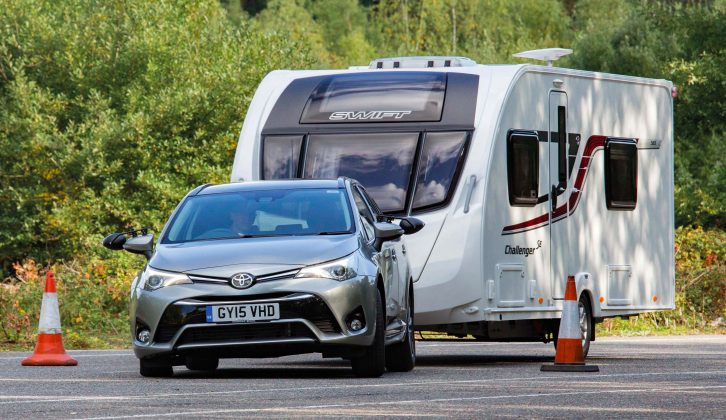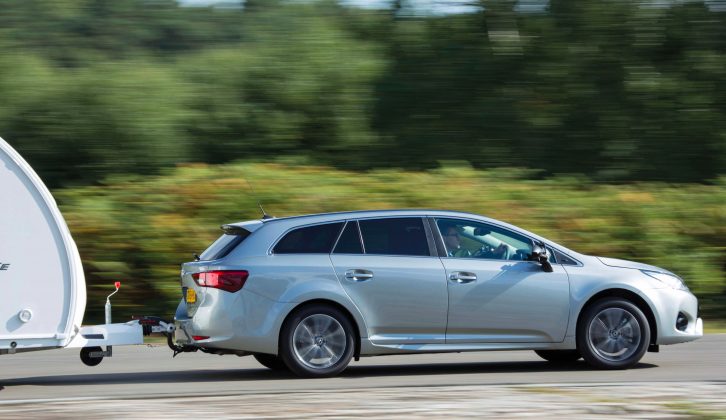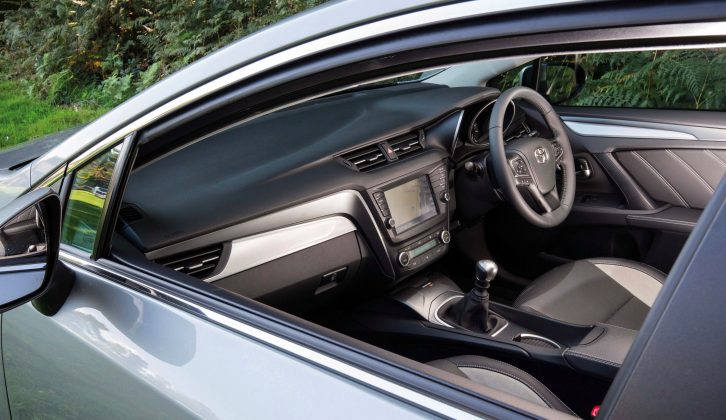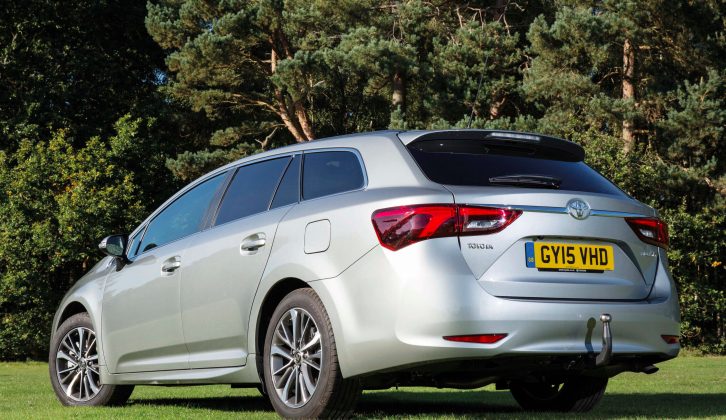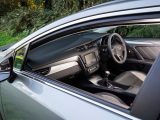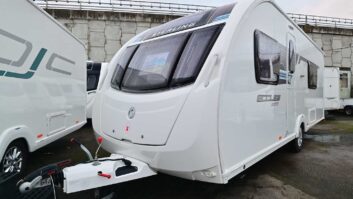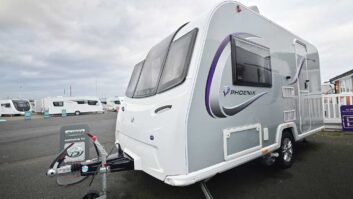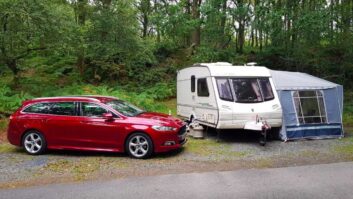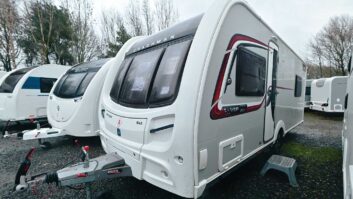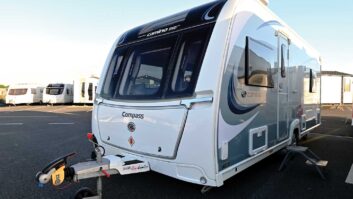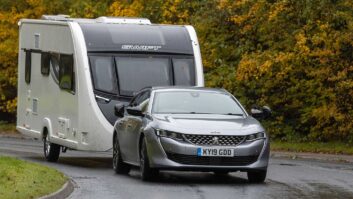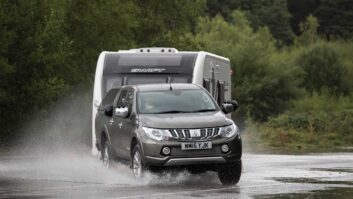The Toyota Avensis has evolved through a few generations, and has adhered to the same formula throughout: it’s inoffensively styled, really well put together, is as dependable as the ground, and shouldn’t cost you a vast amount to keep on the road.
However, if you’re after something to engage you, to make you want to get up and out for a Sunday morning drive, well move along – there’s nothing to see here.
The third-generation Avensis appeared in 2009 as a quite unfashionable four-door saloon and a better-looking (and much more practical) five-door estate.
There was a comprehensive range of engines, comprising 1.8- and 2.0-litre petrols and 2.0- and 2.2-litre diesels with various power outputs.
These were linked to six-speed manual gearboxes as standard, although an automatic ’box was an option.
The car was facelifted first in 2012 and more comprehensively in 2015, when Toyota’s new corporate styling was applied.
Over time, the Toyota Avensis has become more efficient and even better equipped.
Model history
When Toyota launched the third-generation Avensis in 2009 the company said (as all manufacturers do) that the car was a huge step on from its predecessor.
However, this time it was right, because the car was good to look at, had reasonable economy and emissions figures, and felt of significantly higher quality inside.
Safety was much improved too, because the car had a full suite of airbags, including one for the driver’s knees, and was available with an enhanced stability system designed to stop the car from skidding.
Top-end models also had the option of a Pre-Crash Safety (PCS) system, which detected if a crash was unavoidable, and automatically hit the brakes and tightened the seatbelts.
This PCS set-up was also able to keep the car in its lane on the motorway, and to warn the driver if another vehicle was in their blindspot.
What tow car potential?
Tow car fans would be best to put the 1.8-litre petrol model at the bottom of their shopping list, because it’s the one that’ll have to work hardest to tow a caravan.
It needs to be revved hard to make decent progress, which will have a detrimental effect on both your level of relaxation and your fuel economy.
Definitely avoid the automatic gearbox, which makes the car feel even more breathless.
The 2.0-litre petrol will be better in all regards, but not hugely so.
The diesels are the ones to focus on, with the 124bhp 2.0-litre unit proving the best all-rounder – its 229lb ft of torque is more than up to the job of towing a heavy trailer.
If your budget stretches to a post-2015 facelifted car, the 141bhp 2.0-litre diesel is even stronger and more efficient, with a claimed average economy figure of 61.4mpg. That said, many rivals do it better still.
So, what tow car ability does it have? Well, the Toyota Avensis is a confidence-inspiring companion.
It’s stable and surefooted at speed, and is utterly unfazed by a sudden emergency change of direction.
Hill starts are also devoid of drama, although the switch for the electric handbrake is annoyingly out of sight.
Cabin space is reasonable, if a long way from the best in class.
Tow car buyers would be better served with the Tourer (estate) model, because the four-door saloon simply isn’t practical enough.
The estate’s luggage room of 534 litres with the rear seats raised and 1609 with them down is merely average for the class, but the boot is a good shape with a low loading lip.
There’s also space for small items beneath the floor.
Trouble spots
As you’d expect with a Toyota, there are no major dramas to worry about with the Avensis.
Niggles have mainly concerned a few models that develop rattles from the front brake calipers, and the check straps for the front doors causing damage to the door frames.
This generation of Avensis has been subject to two recalls in its life. In cars built between August and December 2013, the glass in the panoramic sunroof could gradually become separated from its frame.
The initial symptom is increased wind noise from the area, but the issue can eventually result in the glass becoming detached altogether.
Give your car’s chassis number to a Toyota dealer, who will be able to check that the work has been carried out free of charge.
The second recall is more significant, and applies to cars built between August and December 2016.
There is a chance that the driver’s airbag may not deploy correctly in a crash, so make sure corrective work has been carried out.
Verdict
The 2009-on Toyota Avensis is a strong, stable and efficient towing vehicle, and it’ll be supremely reliable.
It’s also a perfectly affable car to drive when not hitched up to a caravan.
In other respects, such as cabin and boot space, rivals are better, but the Avensis hits back by being exceptionally safe.
Our pick of the range is the Toyota Avensis Touring Sports 2.0 D-4D T2. All Avensis trims come well kitted, and this engine provides the best mixture of performance, refinement and economy.
However, we would avoid the 1.8 Active automatic – this will struggle most with a caravan attached, and the addition of an automatic gearbox does nothing to help its cause.
What you need to know
Even though early Toyota Avensis Mk3 models are only eight years old, you can pick them up for around £3000. It’ll have high miles, though.
Upping the budget to £6000 can (just) net you a 2012 facelift car with a still-fairly-hefty mileage, but if it’s in good nick a large number on the odometer needn’t be a turn-off.
If you can afford £10,000 or upwards you’ll be able to get one of the 2015-onwards examples. It’ll still have a huge chunk of warranty intact, too.
Here are some useful figures (for a 2015 Toyota Avensis Touring Sports 2.0 D-4D):
- Kerbweight 1675kg
- Towing limit 1800kg
- Noseweight limit 75kg
- 85% match 1424kg
According to quotes obtained from PF Jones, it would cost £118.26 to fit a Witter flange towbar to an Avensis, or £211.14 if it is a Witter detachable towbar.
And in terms of servicing costs, you are looking at £174.73 for an interim service and £251.61 for a full service – for a Toyota Avensis 2.0 D-4D (143) – according to Servicing Stop.
A strong, stable and efficient towing vehicle, and supremely reliable
